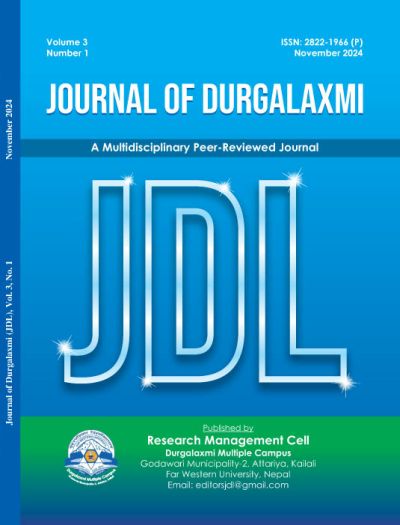Impact of Cost Control Mechanism on Financial Performance
DOI:
https://doi.org/10.3126/jdl.v3i1.73844Keywords:
cost control, financial performance, budgeting, delegation of authority, return on assets, return on equityAbstract
The study aimed to establish the effect of cost control mechanisms on the financial performance of organizations, with a specific focus on the Agriculture Development Bank Limited (ADBL) of Nepal. Cost control, a critical aspect of financial management, is essential for maintaining operational efficiency and maximizing profitability. The research examines key cost control practices, including budgeting, and Delegation of authority to determine their influence on financial outcomes. Using a descriptive and correlational research design, data were collected through a structured survey questionnaire and financial reports of Agriculture Development Bank Limited. 54 questionnaires were emailed to the assistant, officers, and manager-level employees of 8 branches of the Kailali district. 48 valid responses were collected and analyzed through SPSS. The findings reveal a significant positive relationship between effective cost-control mechanisms and financial performance metrics such as return on assets and return on equity. The study underscores the importance of implementing robust cost control practices to enhance the financial stability and competitive advantage of ADBL. These insights provide valuable guidance for policymakers, financial managers, and stakeholders in optimizing cost management strategies to drive sustainable growth in the bank.
Downloads
Downloads
Published
How to Cite
Issue
Section
License

This work is licensed under a Creative Commons Attribution-NonCommercial 4.0 International License.
CC BY-NC: This license allows reusers to distribute, remix, adapt, and build upon the material in any medium or format for noncommercial purposes only, and only so long as attribution is given to the creator.




